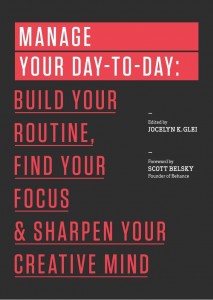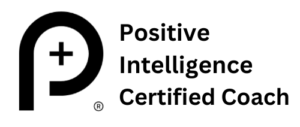 “Seldom do we stop doing what we’re doing and think about (and rework) how we’re doing it.” Scott Belsky, Founder of Behance and author of Making Ideas Happen
“Seldom do we stop doing what we’re doing and think about (and rework) how we’re doing it.” Scott Belsky, Founder of Behance and author of Making Ideas Happen
Over the past couple of weeks, I’ve been pouring over a hodgepodge of journals stuffed onto a lower shelf of the bookcase, unopened for years.
I was nudged into action by Marion Roach Smith, author of The Memoir Project (my favorite book on the craft of memoir) and a gifted writing instructor. The first step to mapping out a memoir, Marion told me, is to index your existing body of work.
Easy enough to do with blog posts, essays, and articles I’ve sent out into the world polished and proofread. But the journals needed to be mined as well, and it was time to let go of my fear of looking back. So I pulled them all off the shelf and simply dove in.
Most are only partially filled. Sometimes months, or even a couple of years, go by with no handwritten entry (though my journaling on the computer fills in some of those gaps).
The books are all shapes and sizes — some of them wrapped in lush textiles from foreign countries, some of them basic spiral notebooks, some of them covered in simple cotton fabric with no adornment whatsoever. One of them is bound by two pieces of thick, engraved wood, a gift from my sister when I was in high school. Another one–grey suede embossed in silver–was chewed by a puppy.
As different as each journal is on the outside, every one of them, at one point or another, says the same thing: “I need to make more time to write.” I’ve been writing that phrase for the past 30 years.
A Mindful System
Joanna Penn is an author, speaker, and entrepreneur who helps writers get their work out into the world. She’s written six novels, markets her work in a variety of countries, and her website, The Creative Penn, was voted one of the “Top 10 Blogs for Writers.” This woman knows how to get things done.
I asked Joanna how she structures her days to fit in the writing, marketing, blogging, and social media management that are key to her success.
 She told me that, though each day looks a little different, she does have a system. She recommended I read Manage Your Day-To-Day: Build Your Routine, Find Your Focus and Sharpen Your Creative Mind, edited by Jocelyn K. Glei, Editor-in-Chief and Director of the website 99U. 99U’s mission is to teach people how to make their ideas happen.
She told me that, though each day looks a little different, she does have a system. She recommended I read Manage Your Day-To-Day: Build Your Routine, Find Your Focus and Sharpen Your Creative Mind, edited by Jocelyn K. Glei, Editor-in-Chief and Director of the website 99U. 99U’s mission is to teach people how to make their ideas happen.
The book is a treasure trove of best practices from an impressive array of thought leaders on building a daily routine, rethinking the role of connectivity, finding focus in a distraction-fraught world, and honing your creative resources. As is so often the case these days, the universe sent this book my way at just the right time.
What surprised me most was the strong role that mindfulness practices play throughout the recommendations. Right up my alley…
My Top 10 Takeaways from Manage Your Day-to-Day
Manage Your Day-to-Day is so packed with insight and research-based recommendations that it’s tough to put together a top 10 list. Since no two people’s organizational and productivity challenges will be exactly the same, you’re top 10 after reading the book may be different from mine.
1. Do your creative, deeper thinking work at the beginning of your day. For me, that means protecting my mornings for writing. Here’s the kicker, though: turn off email, social media apps, and phones during your creative work. Research has shown that even the act of avoiding those temptations if they’re on in the background drains mental energy and impedes focus.
2. Book your creative time as a “focus block” on your calendar and treat it like a meeting or other appointment. Again, no email, social media, or phones on during this time. Do the hard work first, Georgetown University professor Cal Newport recommends, and save the administrative tasks for later.
3. Work consistently and frequently–ideally every day–to build “creative muscle” and momentum, argues Gretchen Rubin, author of The Happiness Project. If she can write every day (and publish multiple books and maintain a huge social media presence) with two kids younger than mine, I should be able to step up my game.
4. Work in 90-minute bursts, then take a break to renew the energy you’ve expended. Research shows that our bodies can only work for 90 minutes at a time at their highest level, thanks to “ultradian rhythms.” After that, Tony Schwartz of The Energy Project explains, we’re “overriding our physiological need for intermittent rest and renewal.”
5. Alternate between challenging creative work and more “mindless” tasks to give your brain time to rest, reenergize, and process complex problems. The research presented on this–which classifies a “mindless” task simply as relatively automatic, not requiring deep thinking–explained why exercise and gardening are so important for my creative process.
6. Set aside a few minutes of solitude every day. My own experience with meditating every morning over the past year confirms what Leo Babauta says in Manage Your Day-to-Day: “This calming of the mind helps us figure out what really matters and to hear our own creative voice, which can be drowned out by the cacophony of our daily tasks and online interactions.” If traditional meditation isn’t your thing, your solitude practice could be as simple as sitting in a chair for a few quiet moments or taking a walk without your phone.
7. Know that multi-tasking on thinking projects is a myth. Research shows that we can only truly multi-task when we’re engaged in highly automatic behaviors, like walking. Otherwise, we are merely “task switching,” doing one thing then another, back and forth, with less skill and accuracy than if we had just done one job at a time. Christian Jarrett cites a study in which participants using IM while reading a textbook took about 25 percent longer to read the passage (not including time spent on the IM) compared with those who simply read.
8. Stop waiting for the right conditions and just DO it. This quote by Erin Rooney Doland really resonated with me: “Just as a basketball player making a free throw on a rival team’s court has to train his body to perform despite the screaming crowd, creative minds must learn to train their attention and marshal their creative energies under the most chaotic circumstances.” Chaotic circumstances? Welcome to my world parenting teenaged sons and a house full of pets.
9. Email and Facebook can wait. Very few emails require our immediate attention. This is even more true for social media interactions. For the past week, I’ve proactively put my creative priorities first, waiting until at least noon before doing the reactive work of answering emails or engaging with social media. Lori Rupp, creator of the website Tiny Buddha, makes a great point: look carefully at why we check our devices all the time. Are we simply seeking reassurance? Validation? Praise? Worried we’re missing out on something? I answered “yes” to all these questions. I’ve been letting my ego get in the way of my productivity.
10. Stop being a creative perfectionist and become a creative pragmatist. At the start of this chapter by Elizabeth Grace Saunders, I thought, “Oh, well at least I’ve gotten over being a perfectionist.” Not. Waiting for ideal conditions, editing myself every step of the way, obsessing over tiny details, over-researching, not sending something out until I think it’s perfect. I’m guilty of it all. Bottom line, “Perfectionists produce very little.” From here on out, I will aim for something less than perfect, with the understanding that I can always improve it later on.
One Thing At a Time
The biggest lesson I’ve learned since awakening to the power of mindfulness is that I can only do one thing well at a time.
Making a few small changes in how I organize my day, giving full attention to one task at a time, and remaining intentional in my online interactions has resulted in a big boost to my productivity and energized me creatively.
I think I’ll start a new journal, but this one will only record how much I have written each day, rather than simply chronicle all the excuses why I haven’t.
What about you? What systems or practices help you feel productive and satisfied at the end of the day? Or where could you use some help?
If you enjoyed today’s entry and are not yet a subscriber, sign up above for free delivery of new posts to your email inbox. (I promise to never share your information.) Social media likes and shares are always appreciated as well!


